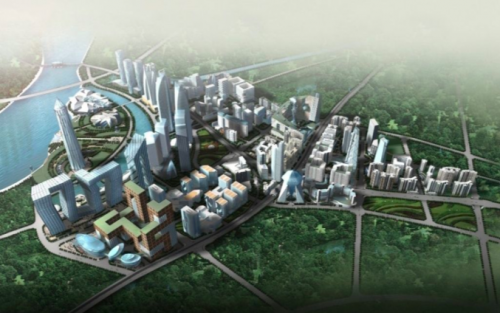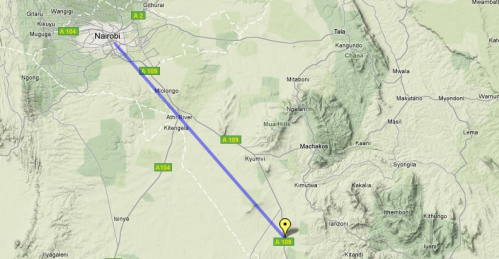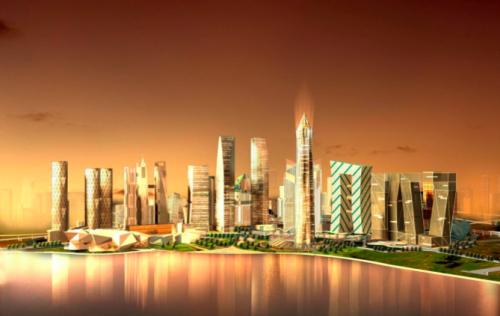I’ve had two meetings with Kenya’s Permanent Secretary Bitange Ndemo (Ministry of Information and Communications) in the last week. Both times a certain project kept coming up in the conversation. It’s called Malili – a 5,000 acre East African technopolis – a city built up for technology firms and it’s the Kenyan government’s way of creating a regional ICT brand.
My first thought up on seeing the pictures: it looks like Dubai has come to Kenya.
The Malili project is modeled off of other large technology and research parks around the world. One often cited in comparison is Smart Village Cairo, which currently hosts 120 companies and 20,000 professionals and they’re expecting that to increase to 500 companies and 100,000 professionals by 2012.
One of Kenya’s goals is to grow IT contribution to GDP from 3% to more than 10% in three years. This won’t happen using Malili as it’s yet to be built. In the interim, PS Ndemo has moved to secure a good portion of the Sameer Business Park, which is on Mombasa road and is almost finished being constructed. This type of space will be available for companies who eventually want to move to Malili in the future, and it also sets the stage for Nairobi being an even more prominent tech hub in Africa.
Location, Location, Location
I like this project, it shows Kenya as a forward thinking country with ambitious plans. My only misgiving is in the location. It’s 60km from Nairobi, and though the Mombasa road is much better, it’s still the most congested and prone-to-jams point on the Kenya roadway system. Yes, it will be a city all it’s own, over time, but Nairobi will still be the “place to be”, so there will be a great deal of traffic.
The airport sits between Malili and Nairobi, so for incoming people, it will be easier to get to than having to drive into, or through, Nairobi.
There’s a lot of discussion within the Kenyan tech community about Malili. It’s a big government project, with private sector participation, and Kenya’s track record of completing these types of big projects has been spotty (think Nyayo Car). Time will tell though, I’m of the mindset to not discount it. It’s time for us to start being optimistic about the possibilities that this country offers in technology.
Some, like the Nairobi tech community and the new Nairobi iHub tend to start small and grow from there. But, government has a different role to play, and it’s good for them to aim high and use their size to make big things happen.
Download the PDF:
Malili Technopolis overview slides – PDF


